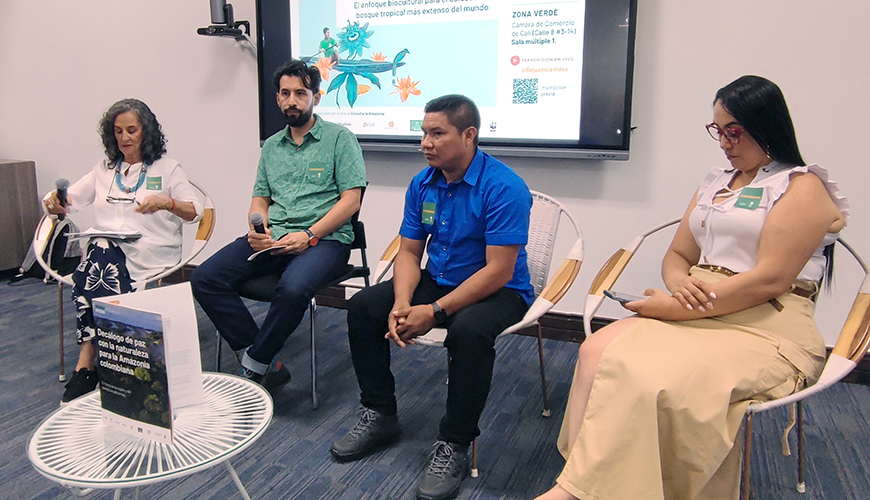The Listen to the Amazon Alliance, of which IRI-Colombia is a member, held the forum “Living and diverse Amazon: the biocultural approach to the care of the largest tropical forest in the world”, on October 21 in the green zone of COP16, in Cali.
During the event, the Alliance officially launched the “Decalogue Peace with Nature for the Colombian Amazon”, a document aimed at civil society and the governments of the Amazonian states, including Colombia, which formulates ten priority issues to guarantee the sustainability of this important biome in the medium and long term.
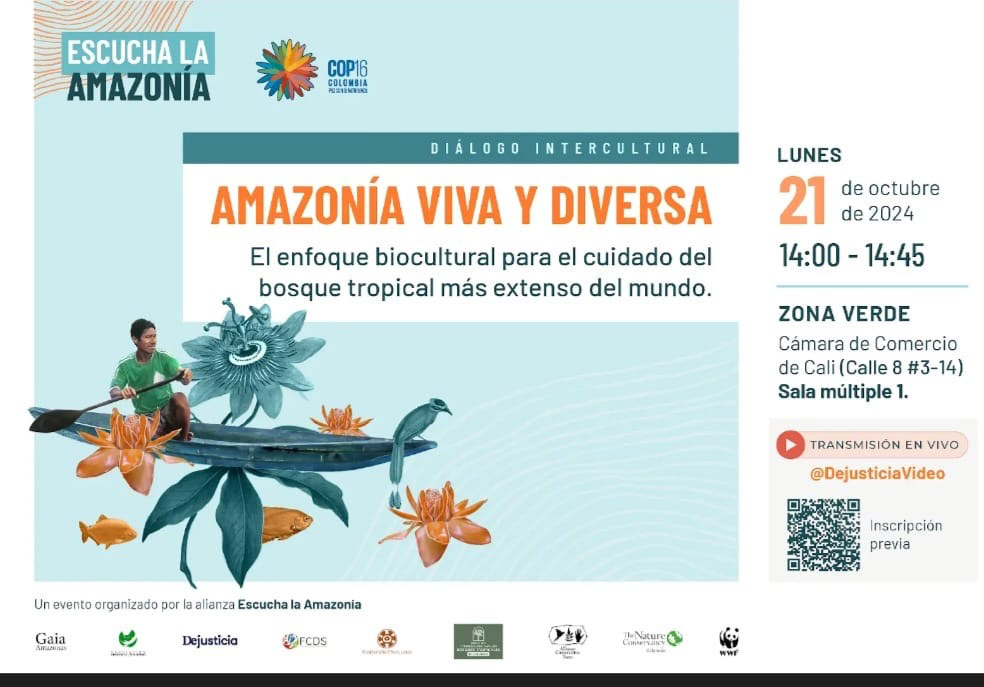
The first of the urgent issues raised by Listen to the Amazon is, precisely, the need to consolidate the region as an intercultural State; For this reason, this meeting became the ideal setting to establish a dialogue between representatives of some social sectors, with the aim of reflecting on their perspectives on the region and understanding the need to take into account its biocultural dimension when thinking about its protection and its future.
The forum, moderated by Paulo Bacca, deputy director of DeJusticia, was attended by Elda Martínez, peasant leader of Caquetá and president of ANZORC; Helsio Rodríguez, indigenous leader of the macro-territory of the Jaguares de Yuriparí; and Lucía Ruiz Mantilla, Ecuadorian academic from the Federal University of Pará.
“For us, the Amazon is the home, the family. We must understand that man is also part of nature and for pure survival he should protect it. The Amazon must be cared for and protected by those who inhabit it,” said leader Elda Martinez, who referred to the potential of the peasant community to contribute to the conservation of the Amazon and some of the actions it carries out with its community in the municipalities of Florencia, Paujil, Doncello and Montañita, in Caquetá, where they have formulated rules of coexistence with an environmental component. “On the one hand, we are told that we are the bulwark in food production, but, on the other, we do not help to reconvert peasant economies into sustainable use,” he added.
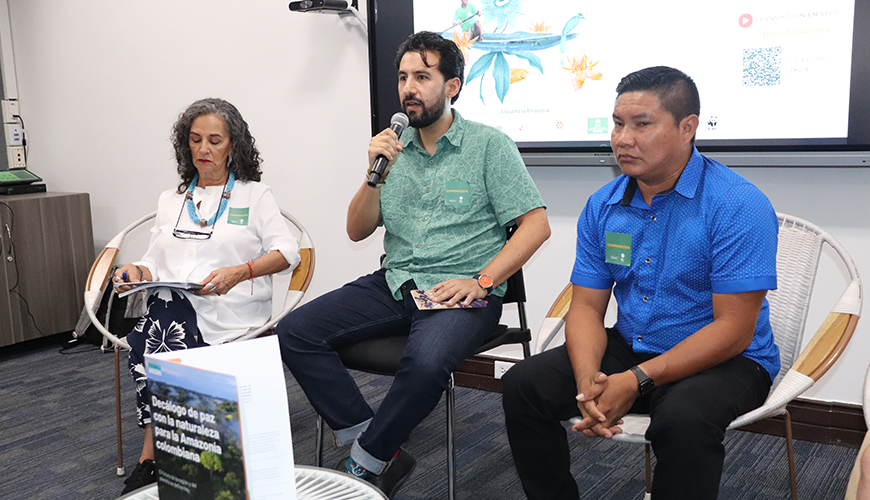 Lucía Ruiz Mantilla, Paulo Bacca and Helsio Rodríguez.
Lucía Ruiz Mantilla, Paulo Bacca and Helsio Rodríguez.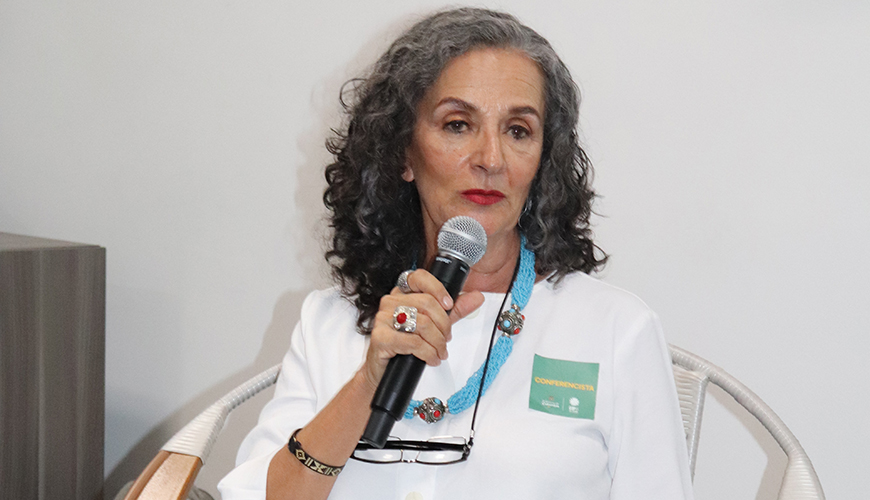 Lucia Ruiz Mantilla, from the Federal University of Para.
Lucia Ruiz Mantilla, from the Federal University of Para.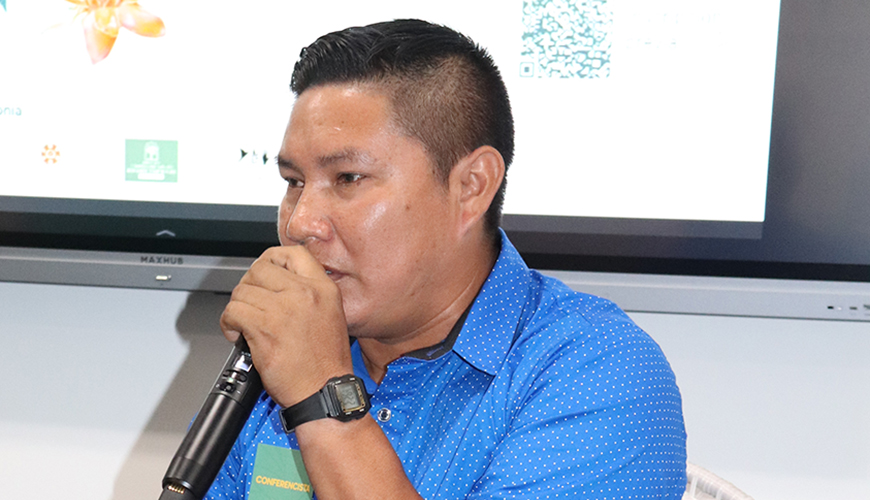 Helsio Rodríguez, indigenous leader of the Jaguares de Yuriparí macro-territory.
Helsio Rodríguez, indigenous leader of the Jaguares de Yuriparí macro-territory.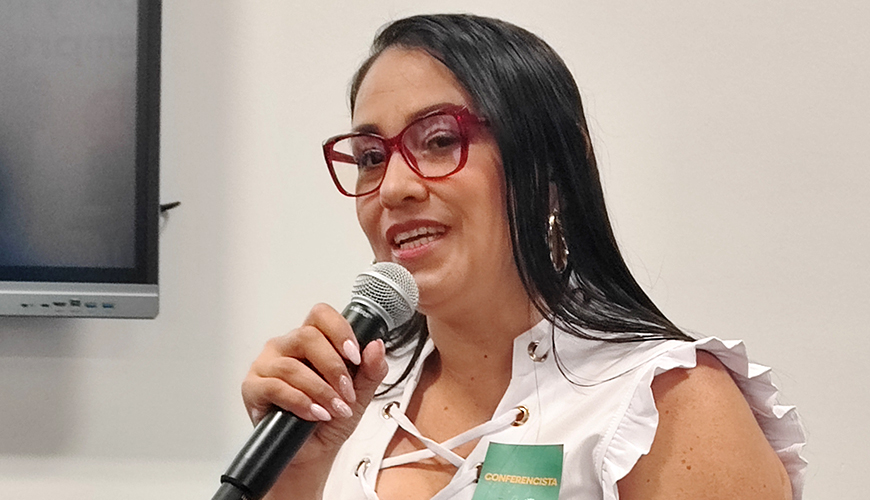 Elda Martínez, Caquetá peasant leader and president of ANZORC.
Elda Martínez, Caquetá peasant leader and president of ANZORC.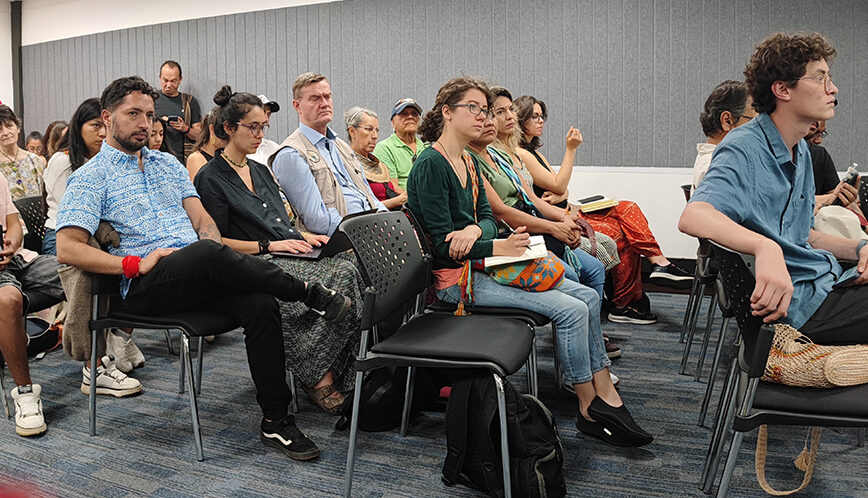 The forum “Living and Diverse Amazonia: the biocultural approach for the care of the world's largest tropical forest” was held at the Cali Chamber of Commerce, in the green zone of the COP16.
The forum “Living and Diverse Amazonia: the biocultural approach for the care of the world's largest tropical forest” was held at the Cali Chamber of Commerce, in the green zone of the COP16.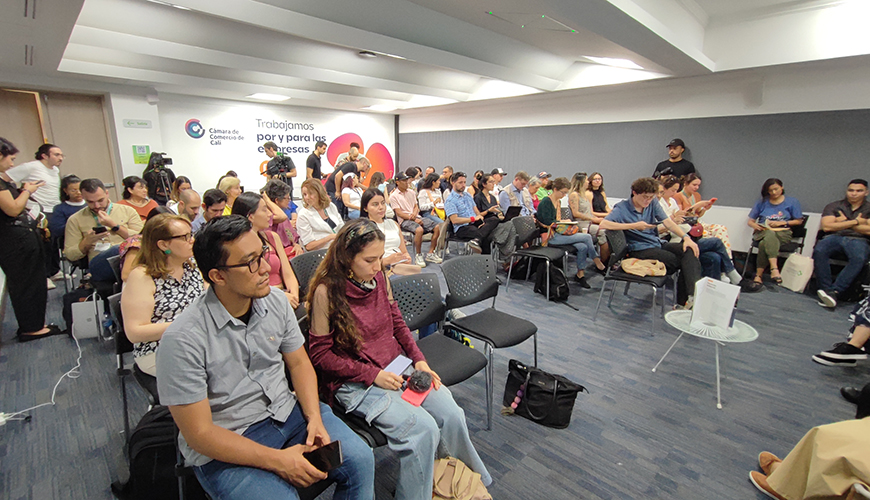 The event was attended by more than 50 people.
The event was attended by more than 50 people.
“For us, the Amazon is the ancestral home, it is the lungs of the world; but, there is no real support, the aid does not reach the indigenous territories. It is important to unite to support and conserve,” said Helsio Rodríguez, indigenous leader of the macro-territory of the Jaguares de Yuriparí, in Vaupés, who referred to indigenous knowledge systems.
For her part, Ecuadorian academic Lucía Ruiz Mantilla reflected on the impact of ancestral knowledge on the conservation of the Amazon and how different studies have shown that thanks to their millenary practices, indigenous peoples have managed to conserve the forest. “The main problem of the Amazon, which we must face, is the model of accumulation, of development. If they do not, the future is not promising. There is an absence of a true intercultural state. It is not only a matter of recognizing ancestral knowledge, but also of indigenous peoples and peasant and Afro-descendant communities being recognized as political-administrative units,” said the academic, a member of the Tropic in Movement program at the Federal University of Pará.
Read the full issue, in Spanish, of the October 2024 IRIboletín.
Read here the “Decalogue of peace with nature for the Colombian Amazon”.

